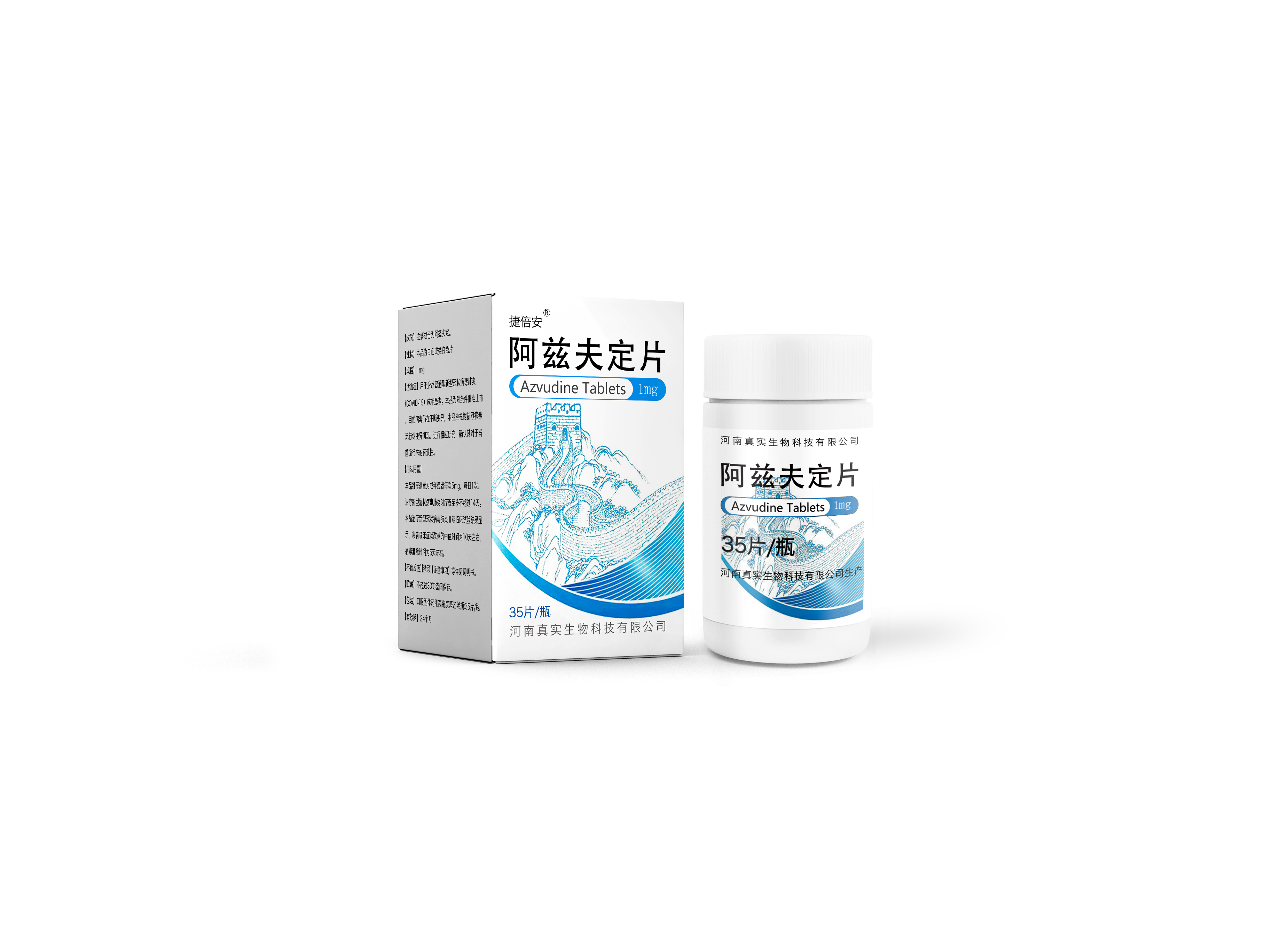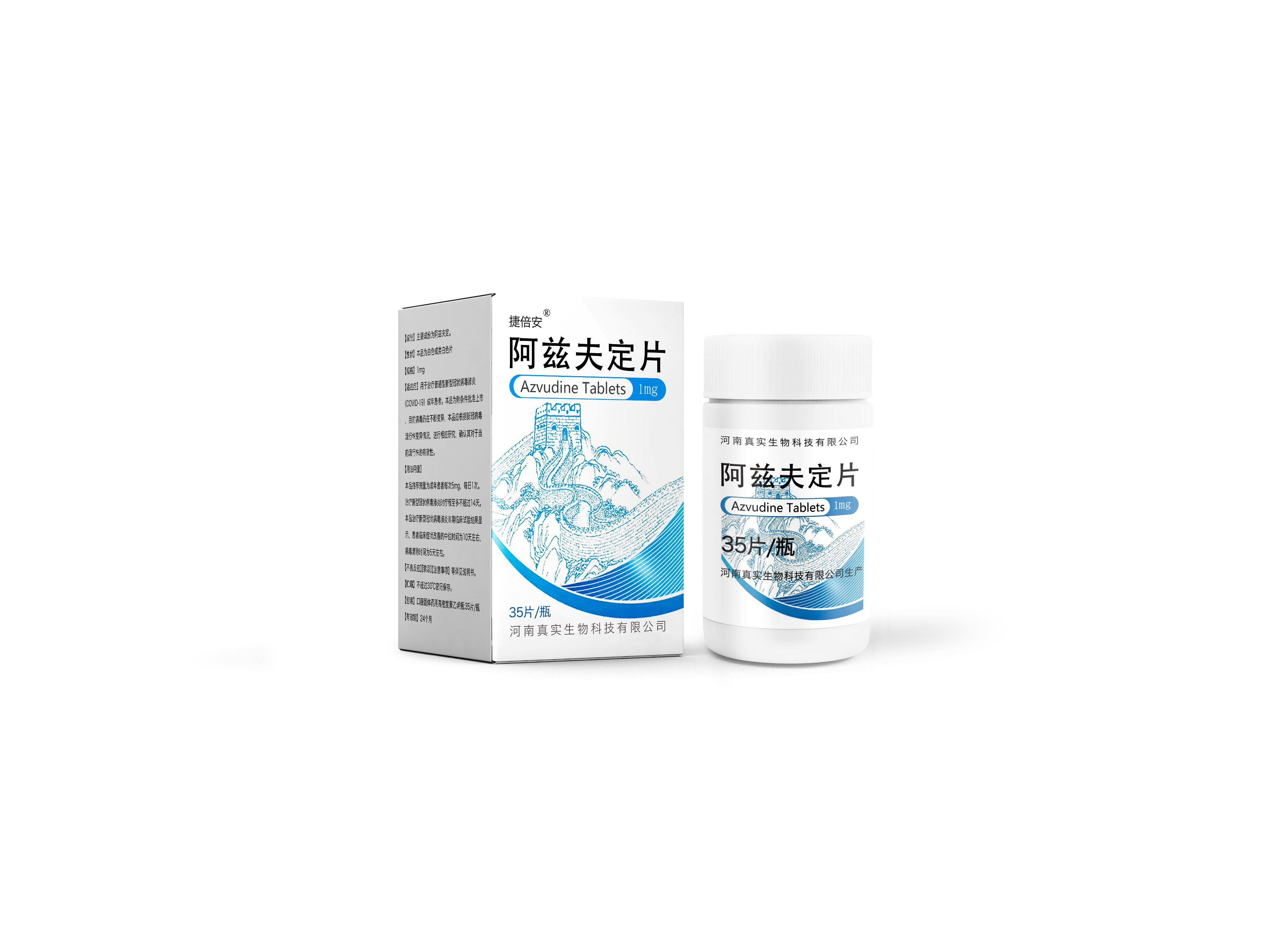*The search scope is limited to the products and news section of this site



| Field | Disease | Drug/Drug Candidate | Target | Indication | Preclinical | Phase Ⅰ | Phase Ⅱ | Phase Ⅲ | Commercialization Rights | |
|---|---|---|---|---|---|---|---|---|---|---|
| Antiviral | HIV infection | Azvudine | RT-c/Vif | HIV infection | NMPA conditional approval |
Global | ||||
| CL-197 | RT-p | HIV infection |
| Global | ||||||
| AII-oral long-acting composite tablet (Azvudine/CL-197) | RT-c/Vif/RT-p | HIV infection |
| Global | ||||||
| COVID-19 | Azvudine | RdRp | COVlD-19 | NMPA conditional approval |
Global | |||||
| Antitumor | ||||||||||
| Solid tumor | Dosimertinib | EGFR | NSCLC |
| Global | |||||
| Azvudine/dosimertinib | DNA-MDSC/EGFR | NSCLC |
| Global | ||||||
| Azvudin/PD-1 | DNA-MDSC/PD-1 | Liver cancer |
| Global | ||||||
| Colorectal cancer |
| Global | ||||||||
| ZS-1001 | STING | Malignant tumor |
| Global | ||||||
| ZS-1002 | ENPP1 | Malignant tumor |
| Global | ||||||
| ZS-1003 | TOPO1 | Malignant tumor ,Irinotecan-resistant tumor | ZSSW-136 | Global | ||||||
| ZS-1004 | PSMA | Prostate Cancer,etc. | PCC Stage | Global | ||||||
| Blood cancer | Azvudine | DNA | Multiple myeloma |
| Global | |||||
| Lymphoma |
| Global | ||||||||
| Acute leukemia |
| Global | Azvudine/CTX | DNA/chemotherapy | Lymphoma |
| Global | |||
| CNS | AIS | MTB-1806 | 15-LOX-2 | AIS |
| Global | ||||
▶ Azvudine
Azvudine was conditionally approved by the NMPA in July 2021 as a national Class 1 innovative drug for treating HIV-1 infected adults with high viral load. As the world’s first pyrimidine nucleoside antiviral drug targeting both RT and Vif for the treatment of HIV infection, it has a number of advantages, including good efficacy, lower risk of drug resistance and potential to be an oral long-acting treatment. It has been listed as one of the National Science and Technology Major Projects (Major New Drug Innovation) in China. The company was granted a first prize of the Henan Province Technological Invention Award for azvudine as a dual-target HIV treatment. Azvudine was included in the 2021 and 2024 China AIDS Treatment Guidelines after it was approved by the NMPA, solidifying its position as a recommended drug for HIV treatment.
▶ CL-197
CL-197 is a novel oral HIV drug candidate under development with potential long-acting mechanism, as demonstrated in pharmacokinetic studies in animal models under oral gavage administration with a half-life period of over 168 hours. CL-197 will be administered orally and has the potential of being administered only once per week. Such relatively convenient drug regimen may also improve medication compliance and thus improve clinical outcomes. The company submitted an IND application for CL-197 in China in July 2022 and received the IND approval in October 2022. The company commenced the Phase I clinical trial for CL-197 in August 2023. As of February, 2025, the clinical trials on all the 44 patients enrolled had been completed, and the company is analyzing the data collected. It is expected to complete this Phase I trial in 2025. As part of the global expansion strategy, the company also plans to apply for IND for CL-197 in jurisdictions overseas.
▶ Azvudine/CL-197 All-Oral Long-Acting Composite Tablet
Given the dual target mechanism of action and long-acting effect of azvudine, the combination of CL-197 and Azvudine meets the requirements of HIV cocktail therapy, treatment in which a patient is given two or more drugs (or other therapeutic agents) for a single disease, equivalent to a composite tablet that achieves the simultaneous effect of three drugs with different mechanisms of action. Pharmacokinetic studies have shown that CL-197 has a half-life of approximately 168 hours in PBMC. It suggests the potential of being administered only once per week.Such relatively convenient drug regimen may also improve medication compliance and thus improve clinical outcomes.
▶ Azvudine
Azvudine, a Class 1.1 innovative drug, was conditionally approved by the NMPA for the treatment of COVID-19 in July 2022. Azvudine was the first NMPA approved oral antiviral treatment for COVID-19 developed by a Chinese company, demonstrating outstanding efficacy in treating viral infections. It not only inhibits viral replications but also enhances immune function, achieving a dual effect of “addressing both symptoms and root causes”. With cumulative sales exceeding 10 million bottles, the safety profile and efficacy of azvudine have been validated by real-world data and supported by 70 research papers published by independent third parties.
In the Phase III clinical trials in China and Russia, azvudine demonstrated clear clinical benefit in COVID-19 patients. Azvudine demonstrated significant benefits in clinical applications: it not only significantly alleviated clinical symptoms of patients with COVID-19 by reducing patients’ viral load and shortening hospitalization time, but also effectively lowered the risks of all-cause mortality and composite disease progression. In addition, azvudine has few drug interactions making it a safe option for patients with pre-existing conditions without the need to adjust combination therapy regimen. Furthermore, azvudine, widely used in various patient populations, demonstrated an adverse reaction incidence rate of only 0.029% and most patients have been able to alleviate fully after experiencing any adverse reactions.
Solid Tumor Drug Pipeline
▶ Azvudine/anti-PD-1
The combination therapy could reactivate T cells via PD-1 pathway suppression, resulting in anti-tumor effects. The company is conducting preclinical studies of azvudine/Anti-PD-1 in liver cancer and colorectal cancer. In the preclinical study, the combination therapy of azvudine and anti-PD-1 showed a 100% complete tumor remission in animal models with liver cancer or colorectal cancer with no tumor recurrence on day 100 after treatment was discontinued. In addition, in a re-challenge experiment for colorectal cancer in mice, tumor cells were inoculated again into mice whose tumors had been completely eliminated by treatment, and the mice exhibited long-term immune memory and rejection of tumor cells. The tumors did not recur after 30 days of observation. In an investigatorinitiated trial in human subjects, 100% of NSCLC patients who progressed after last-line treatment achieved effective disease control, and 75% of colorectal cancer patients achieved effective disease control. The company is initiating further clinical trials in leading hospitals in Beijing and Shanghai to facilitate the development of solid tumor indications of azvudine to address unmet clinical needs in this field. The company plans to submit IND applications for the two indications to the NMPA in 2025.
▶ Dosimertinib
Dosimertinib is a clinical-stage, Class 1 innovative third-generation EGFR-TKI drug candidate with a potentially favorable safety profile. Compared to osimertinib, a widely used third-generation EGFR-TKI, preclinical trial results showed that dosimertinib can reduce the amount of potential toxic metabolites by as much as 80% with the same level of efficacy, and thus is expected to have a better clinical safety profile. Preclinical pharmacokinetic studies have shown that the levels dosimertinib are higher in lung and brain tissue than those of osimertinib, demonstrating dosimertinib has an advantage in the treatment of lung cancer and brain metastases. The company is conducting a Phase I/Phase II clinical trial in China to investigate the safety and efficacy of dosimertinib and expect to complete such trial in 2025. As of February, 2025, the company had enrolled 23 patients for this trial and had completed the dose escalation stage of dosimertinib. The preliminary trial results showed that dosimertinib has a similar efficacy to osimertinib but with a better safety profile. Given its potentially better safety profile, dosimertinib could become a competitive treatment option for EGFR mutationpositive NSCLC.
▶ Azvudine/dosimertinib
The combination therapy of azvudine/dosimertinib blocks the epidermal growth factor receptor (EGFR) signaling pathway by targeting EGFR, thereby suppressing tumor cell proliferation and metastasis. The preclinical in vivo studies have demonstrated that azvudine exhibits significant inhibitory effects on non-small cell lung cancer (NSCLC) with the presence of the EGFR T790M mutation, a common cause of acquired resistance to certain EGFR tyrosine kinase inhibitors (TKIs). Furthermore, it has shown synergistic effects when used in combination with dosimertinib, an EGFR-TKI that is active against T790M mutation. The company has completed the preclinical studies of azvudine/dosimertinib in NSCLC and submitted an IND application to the NMPA in November 2024.
▶ ZS-1003
ZS-1003 is a project aiming to discover anti-cancer drugs targeting topoisomerase I (TOPO1) enzymes. Utilizing an AI-Computer Assisted Drug Design (CADD) approach, the research team break through the structural limitations of traditional camptothecin drugs, modifying the core nucleus of camptothecin, which led to discover hundreds of novel TOPO1 inhibitor molecules with new structures and multiple candidate compounds with the properties of a new generation of payloads with strong global IP protection positions.
Currently, the discovery of the first small-molecule PCC compound under ZS-1003 project has been completed, being ZSSW-136. This PCC molecule demonstrates broad-spectrum antitumor activity and potential to effectively inhibit dozens of cancer cells at nanomolar concentrations; it showed 400 times of the activity as compared with irinotecan (the most widely used TOPO1 inhibitor) in multiple organoids experiments in patient-derived irinotecan-resistant tumor; and more importantly, it can completely inhibit tumor growth in the PDX animal model for irinotecanresistant tumors overcoming irinotecan-resistance, which will address a significant clinical unmet medical need. The company has discovered hundreds of novel molecules through ZS-1003, from which the company has selected several payload compound candidates with best-in-class potential payload properties: the payload molecules are comparable in anti-tumor activity to commonly used ADC payloads (e.g. SN-38, DXd, and other camptothecin-based compounds), but with much improved druggability (e.g. membrane permeability, non-exocytosis, etc.).
The company has discovered numerous payload candidates with more than 50-fold higher potency compared to DXd in the DXd-resistant cancer cell lines; preparation of new ADC drugs with these novel payloads are in progress which will aim to overcome emerging resistance to current ADC drugs with TOPO1 inhibitors as payloads. More importantly, our payload molecules have a completely new parent nucleus structure, thus potentially addressing the drug resistance issue of commonly used payloads.
Since the new generation of payloads can overcome drug resistance, which is a recognized challenge in the field of tumor therapy, and there is no reported new payloads that could overcome the DXd resistance challenge, the company will commence BD and external collaboration work to promote the application of the new payload technology platform to various XDC (ADC, PDC, SMDC, etc.) drug conjugate projects, resulting in a wide range of new drugs that will benefit patients and simultaneously create significant commercial values via licensing fees (such as upfront and milestone payments).
▶ Other Drug Candidates in Development
An agonist of stimulator of interferon genes (STING) identified under ZS-1001 project, which has been identified as an innate immune pathway that can be activated by DNA leakage in tumor cells, and STING agonists can stimulate the expression of antigen-presenting cells (APCs) and type I interferons which leads to the priming and activation of T cells and therefore induce anti-tumor immune activities by directly activating the cyclic GMP-AMP synthase (cGAS)-STING signaling pathway;
An inhibitor of ectonucleotide pyrophosphatase/phosphodiesterase 1 (ENPP1) identified under ZS-1002 project, the abnormal expression of which can be detected in many chromosomal instability tumors;
Under the ZS-1004 project, the company has discovered an ADC drug consists of a novel monoclonal antibody targeting prostate-specific membrane antigen (PSMA), a newly designed cleavable hydrophilic linker and a cytotoxic payload. Compared with healthy cells, prostate-specific membrane antigen is overexpressed on the surface of many cancer cells; the antibody of this ADC has high affinity to the target antigen, low immunogenicity, a long plasma half-life and good endocytosis ability; the linker has high water solubility, reasonable length and stability; specific coupling sites and modified linkers make this ADC have excellent stability, high DAR uniformity and high tumor tissue enrichment. The ADC drug is designed to bind to PSMA-positive cells and cause tumor cell death through the cytotoxic payload. We plan to develop its application in various types of tumor indications, including prostate cancer, liver cancer, bladder cancer, kidney cancer, etc. There are no ADC products on the market for these indications in the world, and the market size is huge. Preclinical studies in tumor-bearing mouse models have shown that the tumor growth inhibition rate of this ADC drug is as high as 95%, demonstrating good tumor growth inhibition efficacy and excellent safety.
Blood Cancer Drug Pipeline
▶ Azvudine
The company is developing azvudine for the treatment of myeloma, lymphoma and acute leukemia. Azvudine has a dual anti-tumor mechanism, i.e., it can not only ihibit the DNA synthesis of tumor cells, but also improve immunity through immune regulation to exert further anti-tumor effects. As a nucleoside analogue, azvudine can suppress the growth and proliferation of cancer cells by penetrating the synthesized nucleic acid chain and causing chain termination. In particular, after azvudine is triphosphorylated in cells, it is incorporated into DNA or RNA molecules to interfere with cell replication, competitively inhibit DNA polymerase, interfere specifically with nucleic acid metabolism as well as prevent cell division and reproduction, ultimately leading to the death of tumor cells. Deoxycytidine kinase (dCK) is a rate-limiting factor for azvudine’s mechanism of action, therefore, azvudine is most sensitive to tumors with high expression of dCK (such as lymphoma).
Compared to other hematological oncology drugs, azvudine shows potential advantages in terms of improved patient compliance, safety, immune enhancement, and high efficacy.
The company has completed preclinical studies of azvudine as a treatment of myeloma, lymphoma and acute leukemia. The in vitro and in vivo studies have demonstrated the effectiveness of azvudine against blood cancer. The in vivo studies also showed that azvudine (2mg/kg) achieved 100% tumor remission in Jeko-1 model and 100% tumor remission in Jurkat model. The company obtained an IND approval from the NMPA for the clinical trials of azvudine in patients with advanced solid tumors in September 2024, and initiated a Phase I clinical trial in January 2025 with three patients enrolled as of February, 2025. Such data will also be used to support the development for the treatment of blood cancer as the safety, tolerability and PK data are inherently applicable for later-phase clinical trials of other cancers.
▶ Azvudine/CTX
The combination therapy of azvudine/CTX utilizes the mechanisms of azvudine as well as CTX, an alkylating agent that could prevent cell proliferation by cross-linking DNA strands and inhibiting DNA synthesis, to impede tumor cell growth and proliferation. In the preclinical study, the combination treatment of azvudine and CTX was administered for two weeks at the same dose level, and complete tumor elimination was achieved in all models in the combination group. The subjects remained free of tumors recurrence upon continued observation. The company is conducting preclinical studies of azvudine/CTX in lymphoma and plan to submit an IND application to the NMPA in 2025.
▶ MTB-1806
MTB-1806 is a small-molecule drug candidate indicated for AIS, which is characterized by a sudden loss of blood circulation to an area in the brain, the corresponding lack of blood and oxygen supply resulting in nerve damage and loss of neurological function.
MTB-1806 has demonstrated good efficacy and safety in preclinical studies. Animal experiments have shown that MTB-1806 can significantly increase the inhibition rate of post ischemic cerebral infarction and reduce the infarct area after cerebral ischemia compared with NBP (an AIS drug approved by the NMPA) while performing well in terms of toxicity and tolerability. In addition, MTB-1806 demonstrated a favorable dose-effect relationship, and in a rat model, the PK of MTB-1806 was superior to that of NBP in terms of in vivo exposure and oral bioavailability. In vitro studies have shown that MTB-1806 had a half-life of 19.09 hours, which could support an once-a-day dosing.
The company's manufacturing site passed the GMP compliance inspection successfully in May 2022. It is a sign that the company can manufacture and operate pharmaceutical products in compliance.
Responding to market demand, Genuine Biotech has devoted full efforts to enhancing production capacity, and now the company has achieved a leap to an annual capacity of 3 billion tablets. This significant enhancement in production capability lays a solid foundation for the commercialization of innovative products.
The manufacturing facility was designed and built for azvudine and other drug candidates, coving the whole manufacturing cycle, including production, dosing, filling, packaging and quality assurance to support the in-house production.
